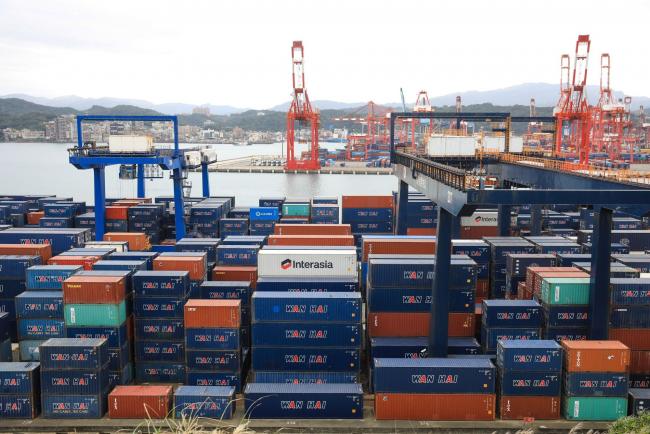(Bloomberg) -- Taiwan’s semiconductor industry may be impacted by recent US moves to reduce reliance on the island’s leading-edge technology, according to a Taiwanese economic official.
A recently passed US semiconductor law, along with a similar proposal in Europe, “could directly and indirectly affect exports of crucial industries in Taiwan,” said Tsai Yu-tai, head of statistics for the Directorate-General of Budget, Accounting and Statistics.
“The uncertainty from these acts will affect Taiwan’s production and exports, although the scale of impact is still unclear,” Tsai said at a Tuesday briefing about Taiwan’s economic outlook.
Tsai was referring to the roughly $50 billion Chips and Science Act passed by the US government in August to boost domestic semiconductor research and development. The legislation is part of the Biden administration’s attempt to reduce dependence on Asian suppliers, including Taiwan.
Read More: Biden Signs Chips Bill, Unleashing Funding for US Production
Taiwan’s government on Tuesday lowered its forecasts for gross domestic product growth for 2022 and 2023 to 3.06% and 2.75%, respectively, citing a slowdown in global demand fueled in part by inflation and China’s Covid policies.
Taiwan’s chip supply chain centering around Taiwan Semiconductor Manufacturing Co. is leading the market, and TSMC is building a chip fabrication facility in the US. But Taiwan’s chipmaking prowess has also long contributed to tensions between the US and China, hastening Washington’s desire to make itself the foremost chipmaking power to counter Beijing.
While Taiwan is preparing its own tax incentives, those plans have not yet been finalized, Tsai said. Earlier this month, the island proposed expanding some tax breaks for companies that invest in technology research and production, an attempt to strengthen its semiconductor industry.
The CHIPS Act’s signing has already spurred US chip companies such as Micron Technology Inc (NASDAQ:MU). to plan billions of dollars in new investments. US Secretary of Commerce Gina Raimondo also recently pointed to the need to shift cutting-edge chip production from Taiwan to the US.
The US has also taken more aggressive action to combat China on technology, including the unveiling last month of sweeping curbs on the sale of semiconductors and chipmaking equipment to the world’s No. 2 economy.
Tsai on Tuesday did not specifically mention sanctions, though said that a prohibition on production in China might create a “large impact on order placement,” impacting the supply chain there.
The EU, meanwhile, agreed this month to pursue a €43 billion to jump-start its semiconductor production, though the plan won’t be finalized until next year.
